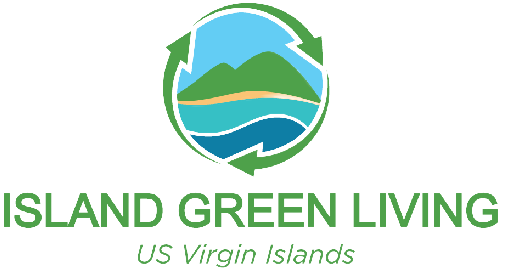Op-Ed: Reflections on a sustainable food supply
Dear Editor,
As we take time to reflect after Thanksgiving this year, let’s turn our thoughts to how we can ensure bountiful tables for all in our island community going forward.
One of the most critical issues facing the world today — and the U.S. Virgin Islands in particular — is securing a sustainable food supply. Over the last several decades, agriculture’s role in the economy of the Virgin Islands has dwindled. Ninety-seven percent of the territory’s food supply is imported, according to the United Nations Food and Agricultural Organization.
Importation of food not only leaves us susceptible to shortages, but it impacts freshness and nutritional value. It also brings additional transportation costs that more than double for Virgin Islanders what stateside residents pay for the same products.
This is especially concerning considering the high poverty rate in the territory and the inability for many to afford fresh produce or to easily access stores and farmers’ markets where available. Growing our own food has the added benefit of keeping our carbon footprint in the islands to a minimum, by eliminating emissions from long-haul transportation and additional food packaging waste.
In March, the food security issue truly hit home. Due to severe logistical and shipping challenges related to COVID-19, many USVI grocery store shelves were empty of fresh produce leading to a crisis. This hit us harder than other parts of the United States due to our reliance on importation. Food scarcity will continue to plague the territory until a sustainable plan to grow local food is developed. Hence, developing and executing a workable program by the community and small farmers is not just an option but a “must do.”
There are some strong initiatives underway and many talented individuals dedicated to supporting farmers and expanding agriculture in the territory. Among them are Dean Usman Adamu of the new School of Agriculture at the University of the Virgin Islands,
UVI Cooperative Extension Program Associate Director Stafford Crossman, Agriculture Commissioner Positive Nelson, the U.S. Department of Agriculture, our senators, NGOs, First lady Yolanda Bryan’s gardening program, Iowa State University EARTH Program and many of our public and private schools to name just a few. There are also numerous award-winning and committed farmers such as Nate Olive and Yvette Browne on St. Croix, Royce Creque on St. Thomas and Josephine Roller on St. John. We salute them all.
The title of a United Nations Conference on Trade and Development report sums it up well: “Wake Up Before It’s Too Late: Make Agriculture Truly Sustainable Now for Food Security in a Changing Climate.” The Virgin Islands must move toward making its food production sustainable and self-sufficient, especially as it relates to fresh produce.
The same U.N. report referenced above states that “small farms are the only way to feed the world” and “the time is now to switch back to our natural farming roots.” Let us heed this advice.
Expansion of small-scale agriculture in addition to more traditional farming is vital.
This can include “backyard” and container gardening/farming, expansion of community gardens, school gardening and support of local farmers. Even things such as edible rather than ornamental landscaping can play a part. It can be advanced through development of a territory-wide community garden plan, strategizing innovative solutions to local farmers’ largest challenges including distribution and technology, and engaging our youth through territory-wide curriculum. Knowledge is power, and the student population could help recruit and impassion their families to participate — including container-gardening at home.
Closely related to this issue is composting and recapturing organic “waste” that can nurture our soil. Sixty percent of what we send to the landfills is organic, compostable material. Island Green, in partnership with the V.I. Waste Management Authority, launched the first ever municipal chipping program earlier this year on St. John and we will soon partner with Sustainable Generation and Gore-Tex on a one year composting demonstration project that produces compost in just two months. The growth of produce, particularly in smaller spaces, can be enhanced further by technological advancements including vertical farming, green walls, climate-resistant greenhouses, hydroponics, aeroponics, aquaponics and more. Training and support could go far, such as crop production, safe pest management, harvesting and post-harvest practices/technologies, and marketing. Canning and expanding value-added commodities (such as jams and relishes) have the potential to fuel profits while protecting against spoilage.
Creative sources of funding could include the development of experiential ecotourism, agritourism and voluntourism focused on farming and agriculture.
Collaborative internship partnerships with agricultural and environmental schools could reduce labor costs.
Those who will benefit most from a focused approach to food security are USVI residents, particularly those whose access to fresh produce is most at risk due to poverty and other challenges. Farmers, grocery stores and farmer’s markets that wish to increase their food offerings would also profit. In addition, local schools and students would benefit from the adoption of STEM and nutritional curriculum that aims to connect students with their food sources.
There is a need to bring cohesiveness to the territory’s efforts to maximize the efficiency and reach of individual programs. By working together, more can be accomplished.
Certainly while we as individuals should do our own gardening, if we are to yield real results and collect data to manage importation of produce, there needs to be formation of a Governor’s Agricultural Council. This would include experienced public/private leaders and include collaboration with the USDA and our delegate to congress. Such a council would bring various entities together and allow for united, forward movement to bring greater results for the territory at large. Collectively we can sow the seeds for change.
Now that is a bounty we could all be thankful for.
— Harith Wickrema, president of Island Green Living Association, resides on St. John
